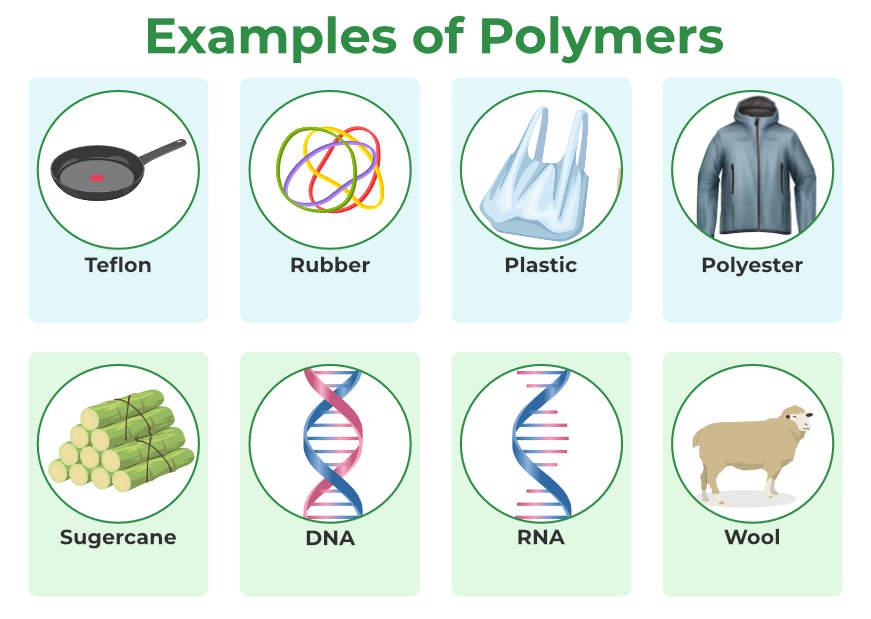Comprehending Polymers: The Scientific Research Behind Versatile Products
Comprehending Polymers: The Scientific Research Behind Versatile Products
Blog Article
Discovering the Varied Applications and Advantages of Polymers in Different Industries
Polymers, with their varied array of properties and performances, have actually ended up being crucial in various industries, each reaping distinct benefits from their application. Polymers. From enhancing safety and performance in the automotive sector to reinventing clinical tools in the medical care sector, polymers play an essential duty. Moreover, their environmentally friendly nature is altering the landscape of sustainability practices. As we explore the midsts of polymers in electronics, we uncover cutting-edge innovations, while their architectural honesty transforms the realm of building and construction and framework. The pervasive impact of polymers across sectors is a testament to their versatility and flexibility, shaping the future of countless fields.
Automotive Field Applications
Polymers play an essential role in improving the efficiency and longevity of different parts within the automobile field. These versatile products are thoroughly used in the production of various components, varying from interior elements to under-the-hood applications. One popular use of polymers in the automobile industry is in the manufacturing of light-weight elements. By changing standard steel get rid of polymer-based choices, automobiles can accomplish better fuel performance without endangering on strength or security.

Health Care Market Benefits
In various healthcare applications, the advantages of making use of polymers are widely acknowledged for their varied variety of helpful residential properties. Polymers play a critical role in the medical care industry due to their flexibility, biocompatibility, and cost-effectiveness. One of the main benefits of polymers in medical care is their capacity to be customized to specific requirements, such as adaptability, resilience, and biodegradability, making them perfect for a wide variety of medical applications.
Polymer-based products are thoroughly utilized in medical devices, such as catheters, implants, prosthetics, and medicine distribution systems, as a result of their biocompatibility and capability to imitate natural cells. These products can decrease the risk of sensitive responses or beings rejected, enhancing patient safety and security and end results. Furthermore, polymers are lightweight, making them suitable for wearable clinical gadgets and ensuring person convenience.
Moreover, polymers enable the advancement of innovative therapy techniques, such as hydrogels for tissue design and nanocomposites for targeted medication distribution. Their simplicity of handling and sanitation makes them necessary for keeping high criteria of hygiene in healthcare setups. Overall, the varied advantages go to website of polymers add significantly to improvements in medical innovation and person care.
Ecological Advantages of Polymers

In addition, polymers can add to energy cost savings because of their light-weight nature. In sectors such as transportation, lightweight polymer products can help in reducing gas intake and greenhouse gas discharges. Furthermore, polymers can make it possible for the growth of energy-efficient products such as insulation materials that boost energy conservation in buildings.
Additionally, polymers play an important duty in lowering water air pollution. As an example, using polymer-based filtering systems can successfully eliminate toxins and impurities from wastewater, guarding water resources and ecological communities. In general, the environmental benefits of polymers make them useful properties in advertising sustainability and eco-friendly practices across numerous markets.
Polymers in Electronics and Technology
Considering the raising need for innovative and lasting options in modern sectors, the combination of sophisticated polymer technologies in the world of electronics and modern technology has actually emerged as a crucial method for driving efficiency and efficiency. Polymers have revolutionized the electronic devices industry by making it possible for the production of lighter, more adaptable, and resilient digital gadgets. From smartphones to clinical devices, polymers play a crucial function in enhancing item style and functionality.
One substantial advantage of polymers in electronic devices is their insulating residential or commercial properties, which aid shield delicate digital parts from environmental variables and electric interference. Additionally, polymers are crucial in the growth of versatile screens, wearable technology, and published electronics, providing endless opportunities for creating clever and interconnected tools.
In addition, the use of polymers in electronic product packaging has additional info caused advancements in miniaturization and thermal management, enhancing the total performance and reliability of electronic systems. As innovation remains to advance, the flexibility and versatility of polymers will undoubtedly drive even more advancement in the electronic devices sector, click for source forming the future of modern technology.
Duty of Polymers in Building And Construction and Infrastructure
The integration of sophisticated polymer materials in building and facilities jobs has reinvented the method frameworks are created and developed in contemporary times. Polymers use many advantages in the building market because of their adaptability, toughness, and cost-effectiveness. One vital function of polymers in building is their use in finishings and sealants, providing protection versus ecological variables such as wetness, UV radiation, and corrosion. Furthermore, polymers are made use of in the production of lightweight and high-strength composite materials, enhancing the structural integrity of structures while decreasing total weight.
In addition, polymers play an important role in lasting construction techniques by allowing the development of energy-efficient frameworks. Insulating products made from polymers help control indoor temperature levels, reducing the demand for heating and cooling down systems and ultimately reducing power consumption. The usage of polymer-based compounds in infrastructure tasks such as bridges and roadways improves their long life and reduces upkeep prices. Overall, the consolidation of polymers in building and construction and facilities displays their substantial impact on contemporary design techniques.
Final Thought
In final thought, polymers play a vital function in different industries such as auto, medical care, environmental, electronics, and construction. From boosting gas effectiveness in vehicles to enhancing clinical gadgets, polymers offer countless benefits.
Report this page